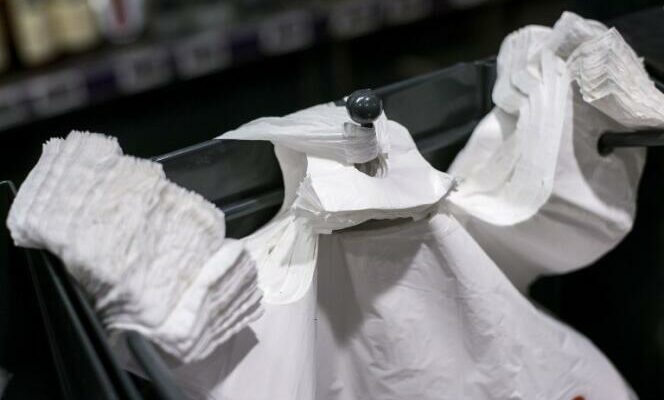The negotiations lasted until the last moment. After more than a year of tough negotiations and an intense lobbying campaign by fast food giants and packaging professionals, MEPs and member states of the European Union (EU) finalized, Monday March 4, during a final meeting, the last major text of the Green Deal: the regulation on packaging. A proposed law intended to stem their explosion and, in particular, plastic pollution.
Single-use cups at coffee breaks, packages for online purchases, water bottles… Europeans have never generated so much packaging waste. In a decade, they have jumped by almost 32 kg to reach an average of 189 kg per capita in 2021, according to the latest data from Eurostat. And at the current rate, the bar of 200 kg per year should be crossed by 2030.
The Twenty-Seven and the European deputies saved the essential: the objectives. Namely, reduce waste volumes by − 5% in 2030, − 10% in 2035 and − 15% in 2040 compared to the 2018 level, and achieve 100% recyclable packaging in 2030 and 100% actually recycled in 2035 (compared to 64% today and only 40% for plastic).
“A major risk of postponement”
Rapporteur of the text in the European Parliament, MEP (Renew) Frédérique Ries welcomed a “historic and unexpected agreement”. The Belgian parliamentarian particularly highlights the ban on single-use plastic packaging in cafes and restaurants from 2030 for drinks and food.
Contrary to the French anti-waste law, which bans all disposable tableware in fast food restaurants since 1er January 2023, cardboard and paper packaging are not affected. Zero Waste France and environmental associations warn about “a major risk of postponement” towards paper and cardboard, two materials that consume a lot of water which largely fly under the radar of the new legislation. A concession granted to Italy, which led the revolt against the text in the name of defending its recycling system, and to the fast food sector.
The American giant McDonald’s financed a study in February 2023 concluding that banning single-use packaging would increase plastic production, water consumption and reduce food safety. The president of the environment committee of the European Parliament, Pascal Canfin (Renew), then denounced a “lobbying campaign that stops at nothing”.
You have 54.32% of this article left to read. The rest is reserved for subscribers.
